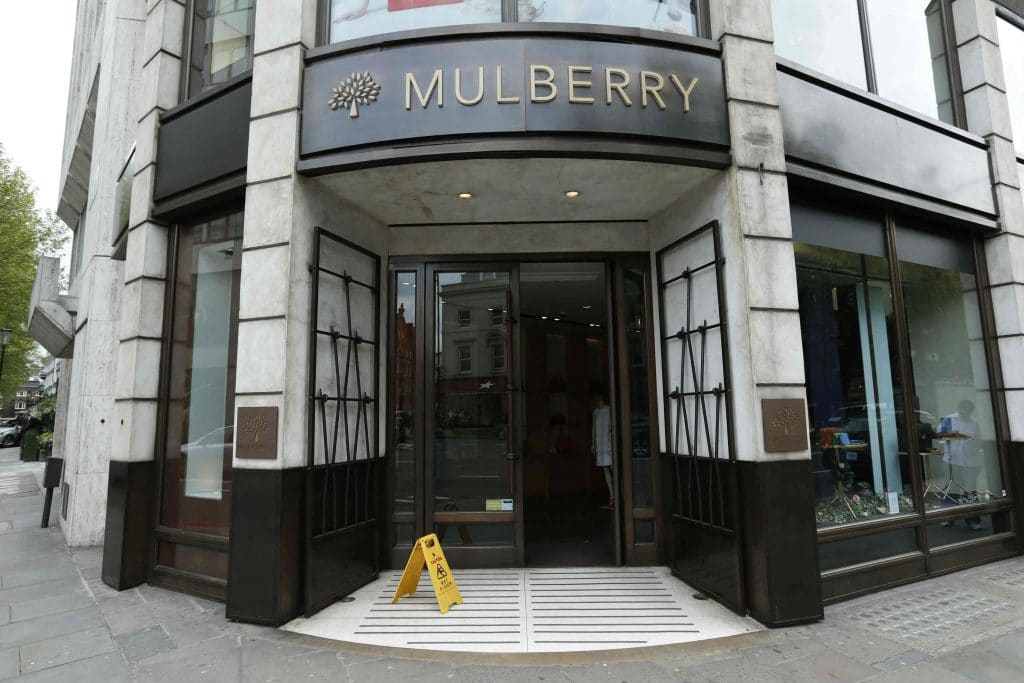// Mulberry books pre-tax loss of £9.9m in half-year report
// This compares with losses of £8.2 million last year
// UK sales slid 4%, but international retail sales surged 25%
Mulberry’s half-year losses have deepened as fewer shoppers visited its UK stores due to tough high street trading.
Shares in the retailer dropped six per cent year-on-year as it blamed challenging high street conditions in the UK, with prices under pressure amid an increasingly promotional-driven market.
Mulberry said the UK woes, together with higher investment costs for international expansion, pushed it to a £9.9 million pre-tax loss for the six months to September 28.
This compares with losses of £8.2 million for the same period a year earlier.
READ MORE:
- Ted Baker CFO leaves for Mulberry after 17 years
- Mulberry swings to £5m loss after House of Fraser collapse
UK sales slid four per cent, with wholesale revenues tumbling 51 per cent as it focused more on direct-to-consumer sales, while retail rose three per cent to £41.6 million.
Retail was boosted by a stronger online performance, while high street trade was knocked by lower footfall in stores.
“Trading conditions remained challenging with subdued demand from domestic UK customers and an increasingly promotion-led market,” Mulberry said.
“Performance in this market significantly affected the group’s results during the period.”
However, the Somerset-based retailer forecast a better second half.
“Against an uncertain backdrop in the UK and with the important Christmas period ahead, the board expects the group to trade profitably and to generate cash during the second half of the financial year,” it stated.
The UK makes up nearly two-thirds of Mulberry’s sales, but chief executive Thierry Andretta is looking to increase its international business – and Asia in particular – to reduce its reliance on its home market.
International retail sales surged 25 per cent over the first half, with Asia soaring by 63 per cent.
Overall, the retailer’s revenues across all markets for the half-year period rose to £68.9 million – compared to £68.3 million last year.
Mulberry is also shifting its strategic focus to include more direct-to-consumer sales channels, through its online offering and stores.
The firm has been reducing wholesale arrangements and recently changed its relationship with John Lewis, which had previously been a wholesale customer, to open concessions in its stores.
In April, the group launched a new global concession on luxury shopping website Farfetch as it moved to bolster digital sales.
Click here to sign up to Retail Gazette‘s free daily email newsletter


















